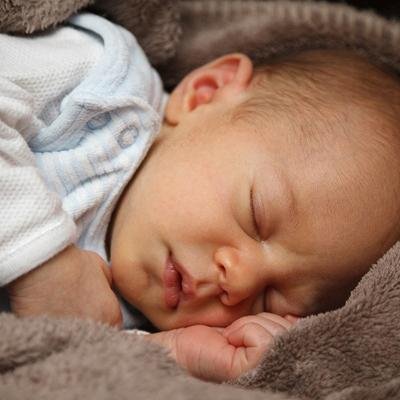
Developing a Baby Sleep Routine
Share
Having a baby is exhausting, especially with their erratic sleep patterns. You may be even wondering if you will even have a full night's sleep again. Once you know the how, why and when babies sleep, you'll be able to create a routine that works for you and your baby.
How can I get my baby used to a night and day time routine?
During the day, open the curtains, engage them with activities and don't worry too much about everyday noises when they are asleep. At night, you may find it helpful to keep the light levels low, put your baby down to sleep as soon as they've been fed and changed, and by talking to your baby in a quieter voice. Your baby will begin to learn that night time is for sleeping.
Where should my baby sleep?
Your baby must be in the same room as you when they're asleep for the first six months. You will probably find that in the early weeks, your baby will fall asleep in your arms. You can begin getting your baby used to going to sleep without you by comforting them as you put them down before they fall asleep or after they've finished a feed. You may find that this becomes much easier once your baby is staying awake for longer.
Newborn sleep
Your newborn baby will sleep on and off throughout the day and night. You might want to try and create a sleep pattern based on their sleeping routine, but this will change as the weeks go by and they are staying awake for longer. So that you are getting enough sleep, you may want to wake your baby for a feed just before you go to bed so you'll get a longer sleep before they wake up again.

Creating a bedtime routine
By three months old, you may feel that your baby is ready for a bedtime routine. Creating a simple bedtime routine can help prevent sleeping problems later on. It's also a wonderful way to have one-to-one time with your baby. The routine could be bathing your baby, followed by putting on pyjamas whilst listening to a lullaby, then putting them into their cot and dimming the lights to create a calming atmosphere. As your child gets older, it can be helpful to keep to a similar bedtime routine and incorporating calming activities like reading.
How much sleep does my baby need?
All babies will have different sleep requirements, but there is an average amount of sleep babies and children need.
Newborn
Most newborn babies sleep for the majority of the day; this can be from 8 to18 hours. Your baby will wake during the night because they need to be fed, and temperature changes can also disturb their sleep.
3 to 6 months old
By this age, your baby will need fewer night feeds and will sleep for much longer. Some babies will sleep for 8 hours or more at night. By four months, they may be spending around twice as long sleeping at night as they do during the day.
6 to 12 months
For babies aged six months to a year, you may no longer be feeding at night, and some babies will sleep for up to 12 hours. At this stage, the discomfort of teething or hunger might wake some babies during the night.
12 months
Babies will sleep for around 12 to 15 hours in total by one year old.
Two years old
Most two-year-olds will sleep for 11 to 12 hours at night, with 1 or 2 naps in the daytime.

Dealing with baby sleep problems
All babies sleep patterns will change, some nights, you will think you have a routine in place, and other nights you'll get up every couple of hours. As your baby grows, their routine will change as they won't require as much sleep during the day, and as they develop, growth spurts and teething can all affect how your baby sleeps.
Do what you can to comfort your baby through these transitions by using your routine of bath, stories and lullabies to help your baby to sleep.
